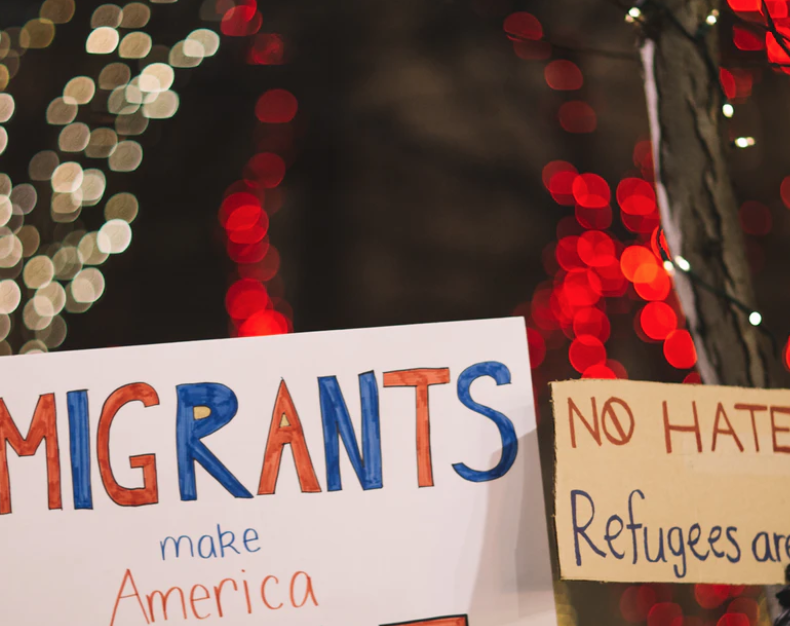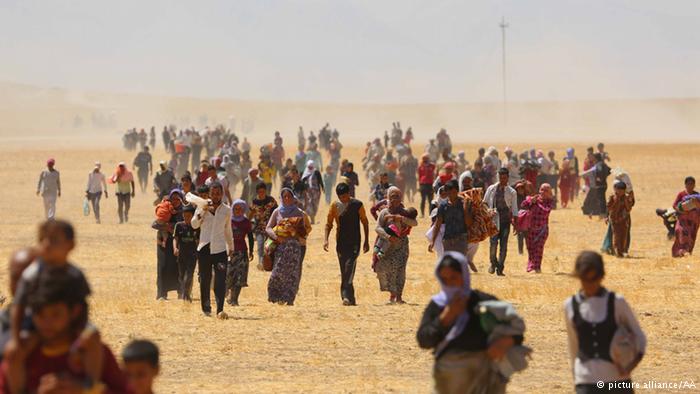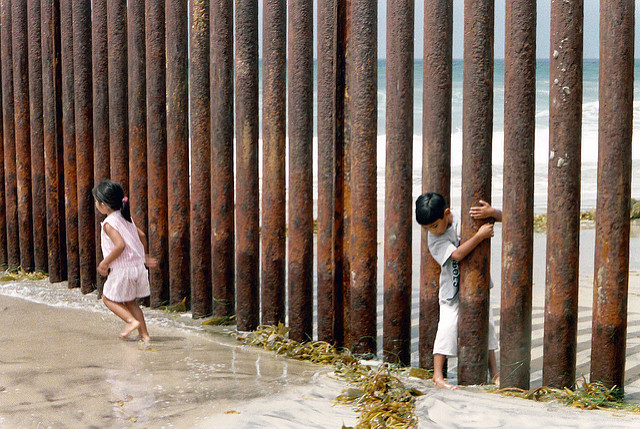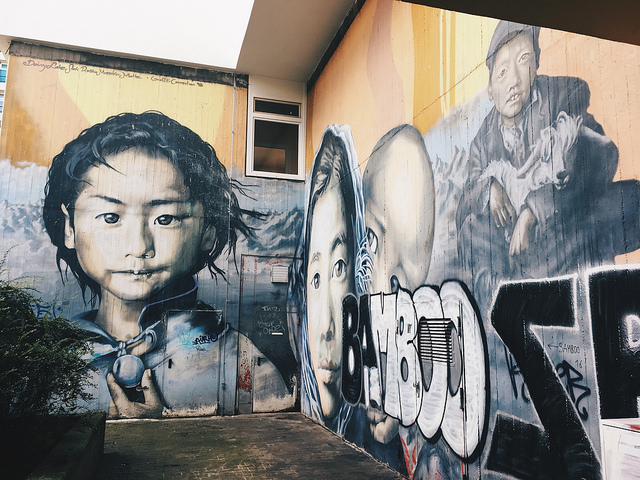By Malcolm Thompson and Alina Sobolik, University of Victoria
Introduction: the Situation
The recent EUCANET Webinar titled “Borders, Security, and Migration” raised several interesting points of discussion regarding the importance of borders on the European and American continents. Specifically regarding the recent migration crisis that struck Europe in the mid-2010s, it was stated that this crisis highlighted the ‘paradoxical effect’ of the EU’s border security, in that there has been an ‘ever closer degree of cross-border mobility within Europe, but also an increased securitization of the external EU border.’ However, statements made in the webinar also highlighted how the migration crisis has contradicted this effect, causing individual EU member states to increase securitization of their internal borders. This blog post looks to highlight this contradiction, and show the economic and non-economic impacts that it increasing internal border checks in the Schengen zone, the area of internal free movement of people in Europe, has had as a result of the migrant crisis. This blog post will also highlight the existential challenges that the migration crisis has posed to the Schengen system and what this could mean for the future of the union.
The Schengen zone is a fundamental feature of the EU’s single market, allowing for the free movement of people internally between EU member states and 4 non-EU countries. However, the recent migrant crisis has called into question the support of this cross-national freedom to continue. As both The Economist (Oct 25, 2018) and Fisher (2018) explained, the increase of immigrants wishing to come into Europe since the beginning of the decade coupled with the impacts of the Eurozone crisis has caused a significant public opposition to the idea of a free internal movement of people, with individual states undermining the Schengen agreement by instituting internal border controls. As of late 2018, these internal border controls “have become more or less permanent in six European countries” (The Economist, Oct 25, 2018). The presence of border securitization within the Schengen zone has led to friction between the functioning of the EU and the national desires of its members. Importantly, this movement away from a fully operational Schengen zone have created fears of economic and political ramifications that could significantly impact the ability of the EU to further ingrate. As the next sections will show, both a breakdown of the Schengen zone could lead to troubles for the EU both economically and politically.
Economic argument
The nature of the Schengen zone as a core feature of the EU’s single market means that increased inefficiencies in the movement of people around Europe has a direct impact on the functioning of the EU’s economy. As Fisher (2018) stated, complications to Schengen resulting from an increase in internal border securitization would affect several “of the union’s most popular perks – ease of travel for work, vacation or family – and undercut trade and labor transfers, weakening the single market economy.” Bringing back stronger borders between Schengen members would constitute a significant cost, as is established by The Economist (Oct 25, 2018), which echoed findings by the European Parliament, and stated that “reintroducing border controls in the Schengen area could cost up to €20bn in one-off expenses and €2bn in annual operating expenses”. However, the economic impacts of rolling back the freedoms of the Schengen agreement reach deeper into the functioning of the EU’s economy, posing a serious potential impact to the operation of many EU businesses.
Speaking in extremes, Zalan (2016) highlighted predictions by the European Commission, and stated that “losing Schengen altogether could cost as much as an €18 billion drop in the EU’s annual GDP”. This, as Zalan, 2016 noted, would mean that the EU’s GDP could be reduced by 0.13% should Schengen fall apart completely. However, there are still significant effects on the EU’s economy should the Schengen zone experience increased complications but still remain intact. This would be seen both in terms of increased expenses for the 1.7 million workers in the Schengen zone that commute between states daily (euobserver, 2016); should internal borders become increasingly guarded, there would be a “lower[ing] of the economic output of the 27 EU countries by 0.19 percent to 0.47 percent on a yearly basis.” (Zalan, 2016)[1]. This decrease would cost the individual European citizen upwards of €130 a year (Zalan, 2016).
Thus, even if Schengen does maintain intact, complications to its functioning would severely affect both European businesses and citizens.
Non-economic implications:
When people feel under crisis, they turn to a strong identity for protection (Fisher, 2018). The desire to belong to a solid group of insiders is a basic human survival instinct (Fisher, 2018).The architects of the European Project had hoped that they could impose a European identity on their citizens through integration but they did not account for the various crises and how they would challenge this project. The people were not made privy to the blueprints for Europe. The migration crisis showed the member state citizens the reality of what was happening behind the scenes in Europe, the fact that integration doesn’t only mean free movement of goods and people but a limitation on member state sovereignty (Fisher, 2018).
To compensate for this sacrifice of sovereignty and ease the concerns of member states regarding security, FRONTEX was created to bolster the external security of the EU. However, RPPs have managed to establish internal borders as a symbolic representation of the nation-state and therefore, the people (The Economist, 2018). Ensuring the people that the EU will do a sufficient job of keeping them safe and that they do not need internal borders is a difficult task with the presence of RPPs who are able to point to various violent and emotionally powerful incidents and claim that it is because the EU is vulnerable, and the nation state must protect itself.
Because the EU does not have a prominent mouthpiece in domestic politics, it is necessary for member state politicians to defend the government’s decision to participate in integration if the project is to remain alive. However, what we’ve seen as a reaction to the various crises is that Politicians lack the “political will to bolster and support the Schengen system in crisis” (Traynor, 2016). Rather than articulating the wealth of benefits that member states receive as a result of the Schengen system, or highlighting the very real challenges to everyday life that a disintegration of the system would result in, politicians have acted to protect their vote, appealing to nationalist sentiments where it serves their electoral purpose (Traynor, 2016). This is not without consequence.
Perhaps the most dangerous impact of RPPs on Europe is not their direct effects on the migration crisis or the temporary closure of borders, but the residual sentiments of nationalism that have no decreased with the slowing of migration. As shown previously, member states benefit exponentially from the Schengen system, but ‘limit Schengen’ sentiments have continued past the immediate demands for control over the migration crisis (Fisher, 2018). The EU is experiencing a “crisis of trust” amongst the member states that fosters a divide between Northern European and Southern European states (The Economist, 2018). This divide, nationalist sentiments, and a desire for the return of member state sovereignty are all incompatible with the project of integration.
Going forward:
It is difficult to predict what will happen to the Schengen system going forward, given the facts that RPPs have established themselves in the political institutions of the member states and that the ideals they broadcast: sovereignty of member states and nationalism, are not compatible with integration.
Three possible outcomes that we have identified are a complete transfer of control over external borders to the EU, a regression of the system into various smaller free movement zones, or the end of the Schengen system (The Economist, 2018; Fisher, 2018; Traynor, 2016).
It is unlikely that, in this current political climate, member states would be willing to surrender control over the external borders to the EU, as shown in the negative reactions to the European Commission’s proposal to establish an EU border guard with authority over national border guards (Fisher, 2018). As well, strengthening external borders helps only to address the migration crisis (Fisher, 2018). What we’ve seen is that challenges to the Schengen system have evolved beyond a response to the migration crisis and established nationalist sentiments that are far more powerful. Supporters of RPPs would not likely support a measure such as this even if it could guarantee the security of external borders because of the implications to national sovereignty and identity.
The creation of smaller areas of passport-free travel opens possibilities to accommodate the ‘cultural’ argument made by RPPs, and allows ‘culturally similar’ member states to enjoy freedom of movement amongst themselves, while erecting borders along lines of variation. This could be a way in which the EU adapts to the presence of and leadership by nationalist RPPs.
https://www.economist.com/europe/2018/06/23/europes-passport-free-zone-faces-a-grim-future
https://www.nytimes.com/2018/07/06/world/europe/europe-borders-nationalism-identity.html
https://ec.europa.eu/home-affairs/what-we-do/policies/borders-and-visas/schengen/reintroduction-border-control_en
https://ec.europa.eu/home-affairs/what-we-do/policies/borders-and-visas/schengen_en
https://www.theguardian.com/world/2016/jan/05/is-the-schengen-dream-of-europe-without-borders-becoming-a-thing-of-the-past
https://www.economist.com/europe/2018/10/25/border-checks-are-undermining-schengen
http://www.europarl.europa.eu/legislative-train/theme-towards-a-new-policy-on-migration/file-temporary-reintroduction-of-border-control-at-internal-borders
https://euobserver.com/business/133253
[1] Croatia is excluded in this count.
Picture: Quim Gil







